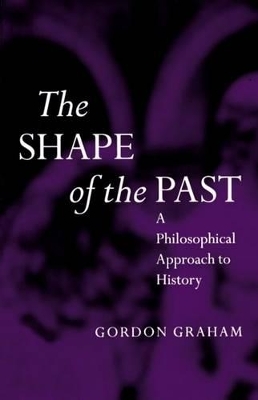
The Shape of the Past
A Philosophical Approach to History
Seiten
1997
Oxford University Press (Verlag)
978-0-19-289255-3 (ISBN)
Oxford University Press (Verlag)
978-0-19-289255-3 (ISBN)
Some of the greatest philosophers, notably Kant and Hegel, have turned their minds to philosophical history. However, it has received little attention in the analytical tradition. This work aims to bring the methods of analytical philosophy to the critical examination of some of these questions.
Can human history as a whole be interpreted in any meaningful way? Has there been real progress between stone age and space age? Does history repeat itself? Is there evidence of divine providence? Questions such as these have fascinated thinkers, and some of the greatest philosophers, notably Kant and Hegel, have turned their minds to philosophical history. As a branch of philosophy, however, it has received little attention in the analytical tradition.
This pioneering work aims to bring the methods of analytical philosophy to the critical examination of some of these questions. In addition to Hegel and Kant, the discussion ranges over the writings of Augustine, Machiavelli, and Alasdair MacIntyre. The ideas of historical progress, secularization and the decline of religion, cultural cycles, historical rupture and God in history are all subjected to careful analysis. Gordon Graham argues that, although unfashionable, the claim that history is the story of progress under the guidance of providence is one of the most plausible accounts of the shape of the past.
Can human history as a whole be interpreted in any meaningful way? Has there been real progress between stone age and space age? Does history repeat itself? Is there evidence of divine providence? Questions such as these have fascinated thinkers, and some of the greatest philosophers, notably Kant and Hegel, have turned their minds to philosophical history. As a branch of philosophy, however, it has received little attention in the analytical tradition.
This pioneering work aims to bring the methods of analytical philosophy to the critical examination of some of these questions. In addition to Hegel and Kant, the discussion ranges over the writings of Augustine, Machiavelli, and Alasdair MacIntyre. The ideas of historical progress, secularization and the decline of religion, cultural cycles, historical rupture and God in history are all subjected to careful analysis. Gordon Graham argues that, although unfashionable, the claim that history is the story of progress under the guidance of providence is one of the most plausible accounts of the shape of the past.
Gordon Graham is Regius Professor of Moral Philosophy at King's College, University of Aberdeen.
| Erscheint lt. Verlag | 6.2.1997 |
|---|---|
| Reihe/Serie | OPUS |
| Verlagsort | Oxford |
| Sprache | englisch |
| Maße | 128 x 196 mm |
| Gewicht | 209 g |
| Themenwelt | Geisteswissenschaften ► Geschichte ► Geschichtstheorie / Historik |
| ISBN-10 | 0-19-289255-X / 019289255X |
| ISBN-13 | 978-0-19-289255-3 / 9780192892553 |
| Zustand | Neuware |
| Haben Sie eine Frage zum Produkt? |
Mehr entdecken
aus dem Bereich
aus dem Bereich
Russland, die Ukraine und der Westen
Buch | Softcover (2024)
De Gruyter (Verlag)
39,95 €
Geschichte und Theorie
Buch | Softcover (2024)
De Gruyter Oldenbourg (Verlag)
24,95 €
wie Irritationen historisches Denken anregen
Buch | Softcover (2024)
Kohlhammer (Verlag)
69,00 €


